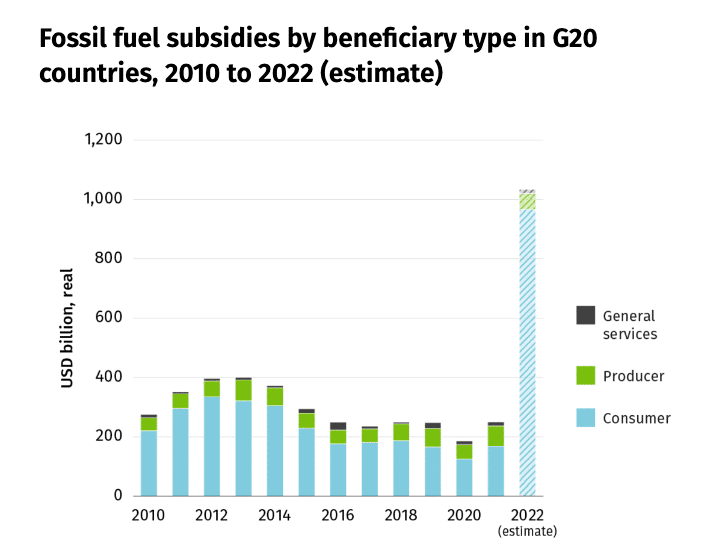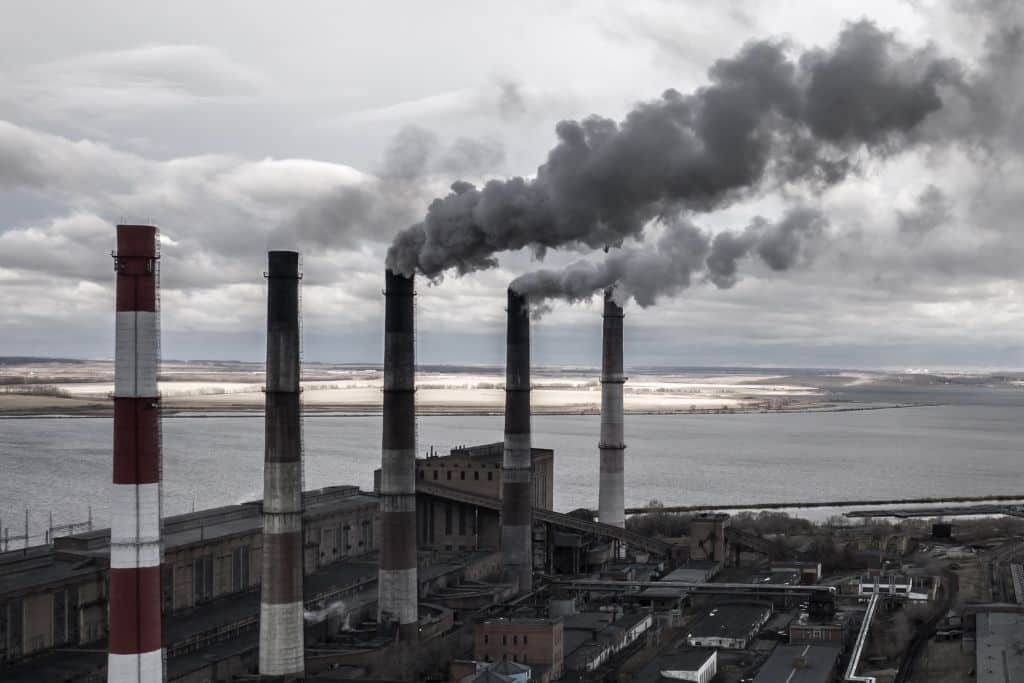At COP26, G20 countries had agreed to accelerate efforts to phase out subsidies for planet-warming fossil fuels “over the medium term.”
—
G20 countries’ investments in the fossil fuel industry reached a record US$1.4 trillion last year, more than double the pre-pandemic and pre-energy crisis levels of 2019, a new report has found.
According to the Institute for Sustainable Development’s (IISD) new analysis published Monday, approximately three-quarters of all subsidies to the energy sector went to coal, oil, and gas last year. About $1 trillion worth of subsidies were aimed at consumers in a bid to protect them against the 2022 energy price crisis brought about by Russia’s invasion of Ukraine, which the authors blame for “catapult[ing] public financial support for fossil fuels to new levels.”
The world’s 20 largest economies also provided some $370 billion to the fossil fuel industry through investments by state-owned enterprises and loans from public finance institutions.
“These figures are a stark reminder of the massive amounts of public money G20 governments continue to pour into fossil fuels – despite the increasingly devastating impacts of climate change,” said Tara Laan, a senior associate with the IISD and lead author of the study.

Fossil Fuel Subsidy Tracker, 2010 to 2021. 2022 consumption subsidy estimate. Image: Institute for Sustainable Development.
Fossil fuels are considered the main culprit of rising global temperatures and a sharp increase in the frequency and intensity of extreme weather events around the world. The dirty greenhouse gases they generate also impact human health, aggravating respiratory conditions like asthma and even leading to lung cancer, coronary heart diseases, strokes, and premature death. According to experts, air pollution from these fossil fuels is responsible for 1 in 5 deaths worldwide – approximately 8 million people every year.
“G20 governments need to shift their financial resources away from fossil fuels to instead provide targeted, sustainable support for social protection and the scaling-up of clean energy,” the report reads. “Maintaining fossil fuel prices that reflect the cost these fuels impose on society will be necessary to reduce fossil fuel use.”
G20 countries committed multiple times to phasing out investments in the industry. At the 2009 Pittsburgh Summit, the heads of the world’s largest economies vowed to “phase out and rationalize over the medium term inefficient fossil fuel subsidies while providing targeted support for the poorest.” As signatories of the Paris Agreement, these nations also committed to keep financial investments in line with the goal of lowering greenhouse gas emissions and supporting climate-resilient development, a promise that was renewed at the 2021 COP26 summit in Glasgow.
“With fossil fuel companies gaining record profits amid the energy crisis last year, there is little incentive for them to change their business models in line with what’s needed to limit global warming,” said Tara Laan, a senior associate with the IISD and lead author of the study. “But governments have the power to push them in the right direction.”
In the most recent meeting in India, however, G20 nations failed to reach a consensus on key climate issues, including phasing down fossil fuels and speeding up the energy transition.
All eyes are now on the upcoming summit, which will take place this September in New Delhi and that many see as the last chance for G20 nations to issue a joint statement on climate ahead of COP28 and position themselves as leaders of the green transition.
You might also like: UN Chief Blasts Fossil Fuel Industry, Calls for Exit Strategy


















